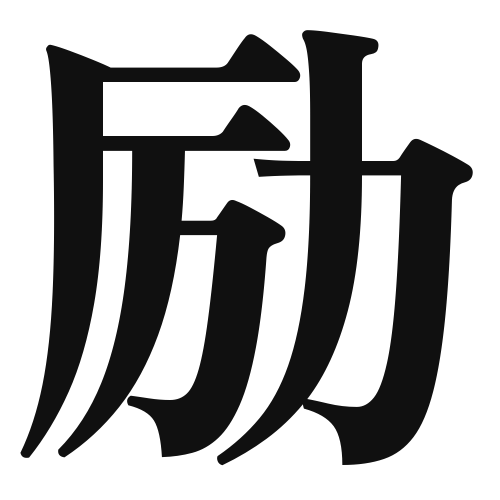1. Overview of Meaning
The kanji 励 (read as “rei” or “hagemu”) means to encourage, to motivate, or to strive. It conveys the idea of giving support or inspiration to someone to help them achieve their goals.
2. Formation and Radical
The kanji 励 is a phonetic compound (形声文字) that combines the radical 力 (meaning “power” or “strength”) with the phonetic component 叡 (which contributes to the pronunciation). The radical indicates a connection to strength or effort.
3. Examples of Usage
Common words and phrases that include 励 are:
- 励まし (hagemashi) – encouragement
- 励む (hagemu) – to strive or to make an effort
Example sentence in daily conversation:
友達を励ますために、私は彼に頑張れと言った。 (I told my friend to do his best to encourage him.)
4. Synonyms and Antonyms
Similar kanji with related meanings include:
- 奮起 (funki) – to rise up or to be motivated, which emphasizes a strong personal effort.
- 促す (unagasu) – to urge or to prompt, which focuses more on prompting someone to take action.
Antonyms include:
- 怠ける (namakeru) – to be lazy or to neglect, which conveys the opposite of striving or making an effort.
5. Cultural and Historical Background
The kanji 励 is often associated with Japanese culture, where encouragement and support are highly valued in social interactions. It reflects the importance of community and teamwork in achieving success.
Proverbs and idiomatic expressions that include the concept of encouragement are:
- 七転び八起き (nana korobi ya oki) – “Fall seven times, stand up eight,” which emphasizes resilience and the importance of perseverance.
